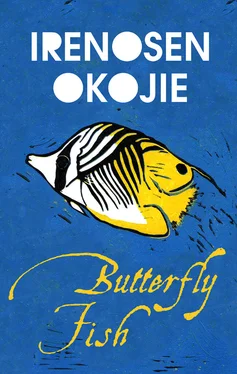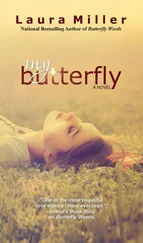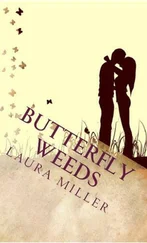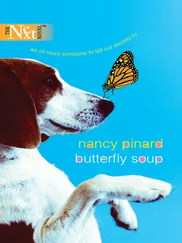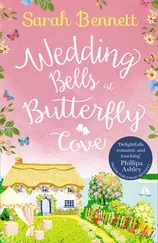Irenosen Okojie - Butterfly Fish
Здесь есть возможность читать онлайн «Irenosen Okojie - Butterfly Fish» весь текст электронной книги совершенно бесплатно (целиком полную версию без сокращений). В некоторых случаях можно слушать аудио, скачать через торрент в формате fb2 и присутствует краткое содержание. Год выпуска: 2015, Издательство: Jacaranda Books Art Music, Жанр: Современная проза, на английском языке. Описание произведения, (предисловие) а так же отзывы посетителей доступны на портале библиотеки ЛибКат.
- Название:Butterfly Fish
- Автор:
- Издательство:Jacaranda Books Art Music
- Жанр:
- Год:2015
- ISBN:нет данных
- Рейтинг книги:4 / 5. Голосов: 1
-
Избранное:Добавить в избранное
- Отзывы:
-
Ваша оценка:
- 80
- 1
- 2
- 3
- 4
- 5
Butterfly Fish: краткое содержание, описание и аннотация
Предлагаем к чтению аннотацию, описание, краткое содержание или предисловие (зависит от того, что написал сам автор книги «Butterfly Fish»). Если вы не нашли необходимую информацию о книге — напишите в комментариях, мы постараемся отыскать её.
Butterfly Fish — читать онлайн бесплатно полную книгу (весь текст) целиком
Ниже представлен текст книги, разбитый по страницам. Система сохранения места последней прочитанной страницы, позволяет с удобством читать онлайн бесплатно книгу «Butterfly Fish», без необходимости каждый раз заново искать на чём Вы остановились. Поставьте закладку, и сможете в любой момент перейти на страницу, на которой закончили чтение.
Интервал:
Закладка:
Mrs Harris gulped some more tea, interrupting my reverie. “You don’t like to spend much time in your garden?” she asked.
“Never really gave it much thought.” My dressing gown knot began to uncurl. I tied it back tightly.
“Ahh, I thought so. I can tell by the state it’s in. Gardening’s good for the soul.” She motioned at her head. “It’s a great stress reliever connecting with the soil like that. I can teach you sometime if you like? It’s simple enough.” She offered with an easy smile.
“Thank you, that’s kind.”
“I’ll tell you a secret.” She leaned in conspiratorially, “sometimes, I play classical music to my fruit and vegetable plants in the garden. It helps them grow you see!”
I smiled at the notion, the element of surprise, saw her apples ripening, patches of red spreading around the sweetness of fruit skin to the swelling strains of Samuel Coleridge-Taylor’s violins and Chopin’s piano.
“That’s genius,” I remarked appreciatively. “I’ll remember that.”
She tossed back the remnants of her tea and stood. “I’ll leave you to it. Oh! Before I forget, I brought these for you.” From her pocket she dug out a small bag of nuts, tied at the neck with a red ribbon. “They’re Brazilian,” she continued. “Lovely robust spicy flavour; let me know what you think!”
“Will do.” I waved her goodbye at the door as she breezed out.
After she left I began washing up and as I opened the cupboard, slowly stacking the clean cups there it was, my mother’s favourite mug, its handle jutting out, a hand-painted mint leaf curved across its white body. I hadn’t been able to bring myself to get rid of it. Seeing it brought back images of mum swept in by the wind, a winter chill behind her, reaching for that mug, filling it with tea and regaling me with stories of her day. It’s funny how the very things that once irritated you about a person were the things you missed most when they were gone. Like phone calls held together by an invisible current, or rummaging through markets because we were two creased people who needed steam ironing. Lately I tried to fill the silences with… anything.
Abruptly, a wave of fatigue swept over me. The thought of facing the day stripped any strength I had left. The stack of unopened letters I’d let build up on top of the DVD cabinet, upstairs the pile of dirty clothes overflowing from the laundry basket, the new battery I still needed to buy for the car, the call to the electricity company to stop them cutting me off. All the mundane dots we connect to keep going.
When I stood it was in slow motion. I was weightless; I didn’t feel my feet touch the first step or know when I had made it to the top. I remember opening the bathroom cabinet and inside seeing the razor that had called me by my name.
I ran myself a bath longing for the peace the water held out for me. Lying there I watched an insect circle the light bulb on the ceiling and envied its frenetic flight. For years I’d been fed on incongruous things; smudges on windows washed away by rain, static from the TV, white lines just before traffic lights, wilting in shaky, packed train carriages. On the need to hold my loneliness, watch it change shape yet essentially stay the same. I felt woozy, faint. In the tepid water my grip on things slipped. The small, silvery, distressed figures I’d seen earlier in the kitchen offered their limbs to the dropped, bloody razor as the frantic black eyes of the dice spun.
At the hospital, I drifted in and out of consciousness a lot. One time, I caught sight of my blood eating into the bandages tightly wrapped around my wrists. When awake, I felt drowsy and dazed, unhinged. I saw myself at the end of a distant tunnel, vaguely aware of the things floating inside it. Of the glare of sunlight filtering through oppressively small windows, the blandness of the ward’s cream walls, the chattering between patients and visitors, terrible food distributed on wooden trays and the squeaky wheeled contraptions delivering them crying against a resigned floor.
Other things lost their definition. I barely recalled swallowing tablets for the white, fabricated river lining my stomach. Nurses blended into one in those first few days. Strangely, I fixated on the staff with watches clipped onto the breast of their uniforms. Those compact keepers of time made me appreciate the beauty of small things and sometimes if I looked closely enough, the hands stopped or the Roman numerals disappeared. This gave the impression that somewhere a slate was being wiped clean.
One evening Mrs Harris came to see me, She sat at the foot of my bed concern inhabiting her face. She was clad in a red tartan coat, black corduroy trousers and a thick, woolly blue jumper. Her white hair was pale moonlight in the room. She picked at a thread on her jumper. “Will you be alright?” she asked in a paper-thin voice. Her green eyes were kind, non-judgmental. I was grateful for this. I cleared my throat, suddenly parched. “I don’t know.” I answered, words slow in my mouth, tongue half asleep, heavy with the realization I’d ended up in hospital.
She leaned forward in the chair, clasped her hands together. “Is there anything you’d like me to do?” There was an odd tone in her voice. Not impatience or reproach but curiosity. Her pink lips were slightly upturned as though about to smile. I was drugged up and a little confused. Somebody dancing a life affirming ritual in the ward aisle could have appeared sinister to me. Hot shame burned into my bones. “… I don’t think so”. What should I have said? That I just wanted the horrible feeling to end. That I’d been walking around with this weird sense of doom for a while, having heart palpitations, anxiety attacks, not sleeping very well?
She nodded gravely, stood and edged closer to the bed. I looked at the lines in her face wondering about the secrets they held.
“Things happen dear, don’t feel embarrassed. Sometimes, all it takes is that extra thing for life to unravel, a small push on top of everything else.” She responded candidly, peered at me as though seeing me through a foggy window.
“Thank you for what you did.” I held her gaze. “If you hadn’t had come back…”
“It’s alright, my ring had dropped off somewhere.” She raised her finger in support. When you didn’t answer the door, I got worried.”
We sat awkwardly in the moment, waiting for the noise of my crash landing to fill the silence.
Mrs Harris made several visits. She was light and colour from the world outside. She entertained me with interesting news stories, gesturing dramatically as she talked. She brought vanilla cheesecake, avocadoes “to fatten you up!” A 1970s copy of Time magazine with a feature on Ella Fitzgerald, old magazines from The Petrie Museum on Egyptology, a packet of bright, lusciously rendered Iranian playing cards bought from a car boot sale and swathed in plastic bags several slim bottles of green ginger wine.
One evening, as syringes fed silences into waiting veins Mrs Harris sat by my bed casually flicking my old Nigerian, copper kobo coin. To my horror, I saw myself emerge from it, near the wheel of the bed being spun by a cold, unidentifiable hand. Shock ran through my body. I looked to see if Mrs Harris had noticed the fear on my face rendering me mute but she was counting the coloured buttons she’d bought, holding them up to her eye one at a time and looking through their holes as if collecting new perspectives.
After she left, I began thinking about the difference between chance and luck. I wondered whether it was chance or bad luck that had landed me in the hospital. I thought about a Harmattan wind hurtling Mrs Harris into my life, and that same wind blowing my mother’s life out. My name is Joy. But my story doesn’t start with me, my mother, or even with the brass head my mother left me in her will. It really begins a long time ago, in a place where centuries after they were gone you could still hear the wishes and whispers of warriors, queens and kings.
Читать дальшеИнтервал:
Закладка:
Похожие книги на «Butterfly Fish»
Представляем Вашему вниманию похожие книги на «Butterfly Fish» списком для выбора. Мы отобрали схожую по названию и смыслу литературу в надежде предоставить читателям больше вариантов отыскать новые, интересные, ещё непрочитанные произведения.
Обсуждение, отзывы о книге «Butterfly Fish» и просто собственные мнения читателей. Оставьте ваши комментарии, напишите, что Вы думаете о произведении, его смысле или главных героях. Укажите что конкретно понравилось, а что нет, и почему Вы так считаете.
